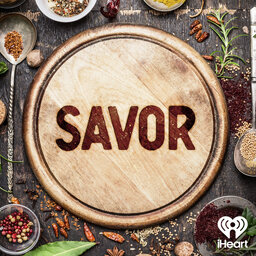The Interesting Intrigue of Margarine
This nondairy butter substitute has been embroiled in legal and nutritional controversy since its invention. Anney and Lauren explore the history and science of margarine.
Learn more about your ad-choices at https://www.iheartpodcastnetwork.com
In 1 playlist(s)
Savor
Savor digs into how people live and how they eat – and why. Hosts Anney Reese and Lauren Vogelbaum i…Social links
Follow podcast
Recent clips

Savor Gives You a Raspberry
36:28

Seeing Red Beans and Rice
35:46

Pining for Taiwanese Pineapple Cake
34:25
 Savor
Savor